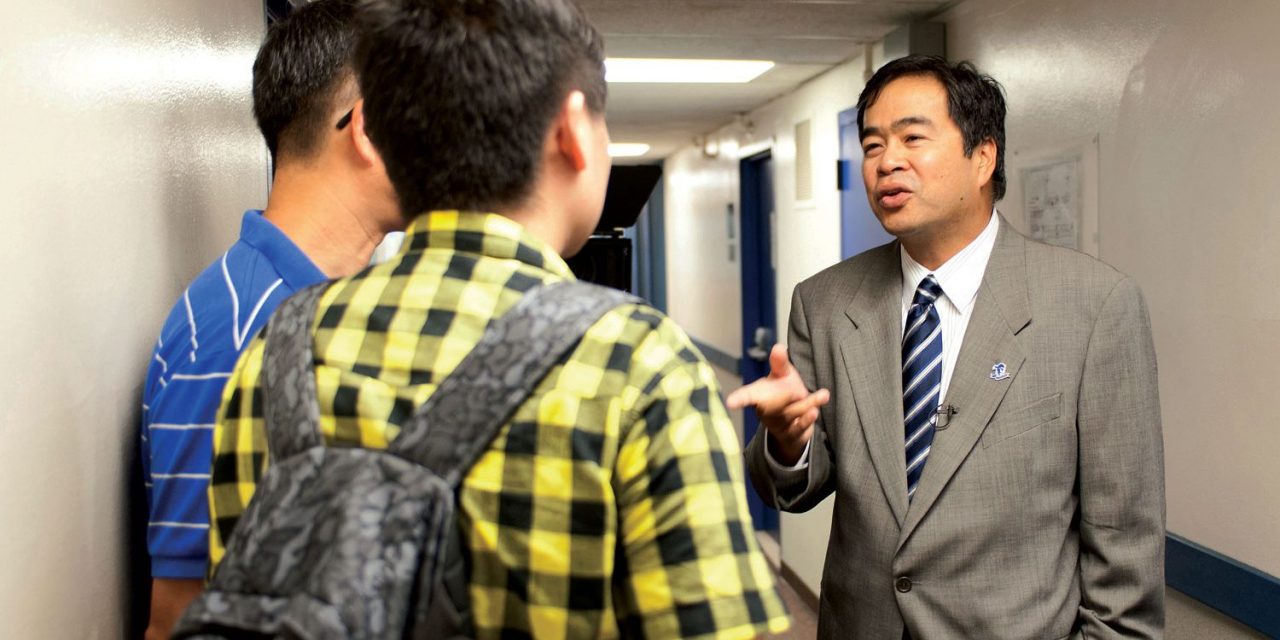As members of the Seton Hall community, we are thoroughly acquainted with the concept of servant leadership, which has informed our institutional culture and mission for nearly 160 years. The principle is so deeply ingrained at Seton Hall that we may fail to realize its distinctiveness in American higher education.
Popular culture too often sends young people messages that emphasize personal success rather than concern for others. And there is a growing perception that universities amplify this problem through their admissions practices — by placing greater value on high school students’ individual achievements at the expense of their efforts to serve society.
In January, administrators from 87 colleges and universities spoke out against this troubling trend in a report titled “Turning the Tide: Inspiring Concern for Others and the Common Good through College Admissions.”
Without question, individual accomplishments have received undue prominence at some institutions. And parents who want their children to attend those institutions often reinforce the primacy of stockpiling personal triumphs.
Consequently, many students internalize this narrow definition of success. When the report’s authors asked more than 10,000 middle- and high-school students what mattered most: high individual achievement, happiness or caring for others, only 22 percent answered caring for others.
“Turning the Tide” also noted that excellent students from poorly funded schools have fewer opportunities to amass personal accomplishments, such as Advanced Placement classes and leadership in extracurricular activities. These teenagers are often passed over by top universities even if they are equally capable in the classroom and perform more service than their affluent peers.
Ultimately, according to the report, many institutions enroll students who are academically and culturally homogenous and who possess an extreme self-focus, not knowing how or why to foster their own nascent affinity for ethical citizenship. “Turning the Tide” calls for universities to reform their admissions processes to better serve students, themselves and society as a whole.
What are the group’s recommendations? Deflate needless academic performance pressure that often drains the time and energy students have to contribute to others. Place a higher emphasis on recruiting students who serve their communities in authentic and meaningful ways. And redefine achievement to create greater equity and access for those from economically disadvantaged backgrounds.
I hope you will agree that these recommendations — and the transformative changes they are meant to create on campuses nationwide — have long been essential components of Seton Hall’s academic programs, campus life and institutional style.
As it has done for generations, the University recruits worthy students who will make the world a better place — now and in the future. That many of our peer institutions are realizing the benefits of this approach is certainly gratifying, and constitutes a robust validation of the Seton Hall experience.
I take pleasure in issuing regular updates on the growing academic quality of our freshman classes. And for good reason. Each year we draw from a stronger applicant pool and each year the University’s intellectual environment is further enhanced by our new students.
As you may know, Seton Hall has advanced 13 places in U.S. News & World Report’s annual college guide over the past five years; SAT scores for incoming freshmen have grown by 95 points since 2009; and last fall 1,408 freshmen boosted the total number of undergraduates to 6,093 students — the largest undergraduate population at the University in more than three decades.
You may not know that roughly 30 percent of our undergraduate student body is made up of students whose families are eligible for federal Pell Grants, which are given to individuals of modest means. I am especially proud that some state universities, which were created specifically to provide affordable educations, enroll a smaller percentage of Pell-eligible students than Seton Hall does. And many of our peer institutions — both Catholic and non-Catholic — are nowhere close to us in terms of Pell-eligible students.
This is what makes Seton Hall unique in the American educational landscape: our ability to advance in stature — which we will continue to do year after year — while simultaneously upholding our legacy of access to outstanding students from diverse backgrounds.
Why do we hold so dearly to this mission?
Of course, for students to be successful in the workforce they need excellent preparation. But they also must learn to work with individuals from different backgrounds because today’s workforce is increasingly diverse — a characteristic that will only increase in the coming years.
Moreover, we would be remiss as a Catholic institution if we didn’t serve those who otherwise would not have the opportunity to attend a prominent private university. When I speak to our alumni, I hear again and again, “I was the first person in my family to go to college,” or “If not for Seton Hall, I would not be where I am today.”
That is the opportunity that lies at the heart of our University. Throughout its history, Seton Hall has opened its doors to excellent students from all backgrounds, accepting those who understand and appreciate the singular educational experience that only Seton Hall can offer.







